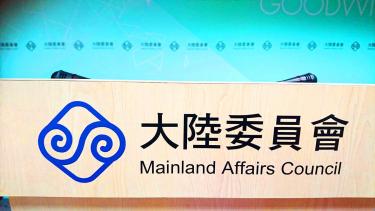Premier Su Tseng-chang (蘇貞昌) yesterday lambasted legal expert Shao Tzu-ping (邵子平) for accepting Chinese citizenship while expecting to remain eligible for Taiwan’s National Health Insurance (NHI) system and pension program.
“There’s no way that would ever happen,” Su said.
The health insurance system and pension program are meant for the 23 million Taiwanese citizens whose hard work makes the benefits possible, he added.
Su’s remarks came after media on Monday reported that Shao — whose local household registration was revoked because he assumed Chinese citizenship — has vowed to return to Taiwan and sue the government.
Hong Kong’s Ming Pao quoted Shao as saying that Taiwan’s move was clearly unconstitutional.
Shao is known for his contribution to John Rabe’s journal The Good Man of Nanking, which recounts the events that led to the Nanking Massacre of 1937 and 1938.
He also helped produce Magee’s Testament, a film that contains footage of the Nanking Massacre that was shot by missionary John Magee.
According to the Chinese-language report, Shao’s household registration in Taipei was canceled last month by Taipei’s Wanhua District (萬華) registration office in compliance with National Immigration Agency regulations prohibiting Taiwanese nationals from taking Chinese citizenship, the report said.
Shao, who is in his 80s, criticized the government for canceling his household registration, saying that it seriously damaged his economic interests and trampled on his civil rights, the report added.
“I have had my household registration in Taiwan for decades and without it, I am unable to apply for National Health Insurance or claim my retirement pension,” he was quoted as saying.
“The rights to which I am entitled are all gone,” Shao said, adding that he only registered a household in Nanjing out of necessity, as he regularly spends time there and also needed to open a bank account.
Shao, who resides in Nanjing, said that he intended to sue Taiwan’s “immigration authority and its head [Director-General Chiu Feng-kuang (邱豐光)], and also the Democratic Progressive Party” for depriving him of his rights.
According to local media, he grew up in Nanjing, but escaped with his family to Taiwan when he was 12, before China fell to the communists.
He graduated from National Taiwan University with a law degree in 1958 and moved to the US in 1971, where he worked at the UN until his retirement.
In 2003, he left the US to settle in Beijing with his wife. He registered his Nanjing household in December last year and received a Chinese identity card in January.
The immigration agency on Monday told Shao that he has breached the Act Governing Relations Between the People of the Taiwan Area and the Mainland Area (臺灣地區與大陸地區人民關係條例).
The law stipulates that Taiwanese nationals with Chinese household registration or passports must forfeit their Taiwanese household registration. Without the registration, they cannot participate in elections, serve in the military or take public office.
Shao’s household registration in Wanhua District was canceled on March 18, the immigration agency said, adding that the case was handled according to the law.
Mainland Affairs Council Minister Chen Ming-tong (陳明通) yesterday wrote on Facebook that Shao’s situation was easily resolved without involving the courts.
According to Article 9-2 of the act, if Shao presents documentation that he has annulled his residency in China and renounced his Chinese passport, he can apply to the Ministry of the Interior to reinstate his Taiwanese citizenship and reside once again in Taiwan
Source: Taipei Times - 2019/04/10





















